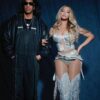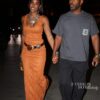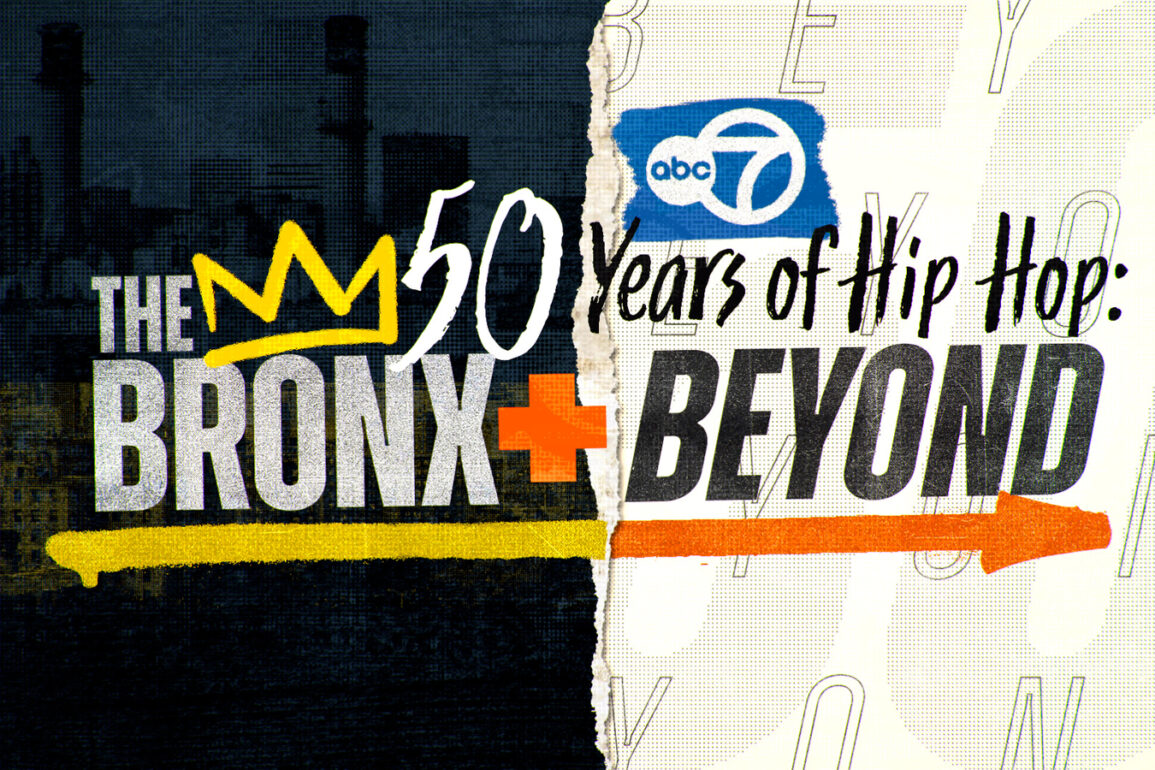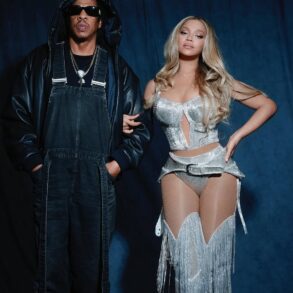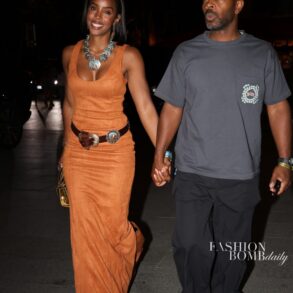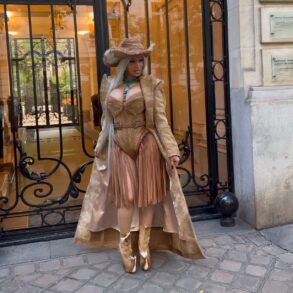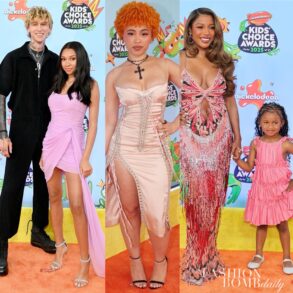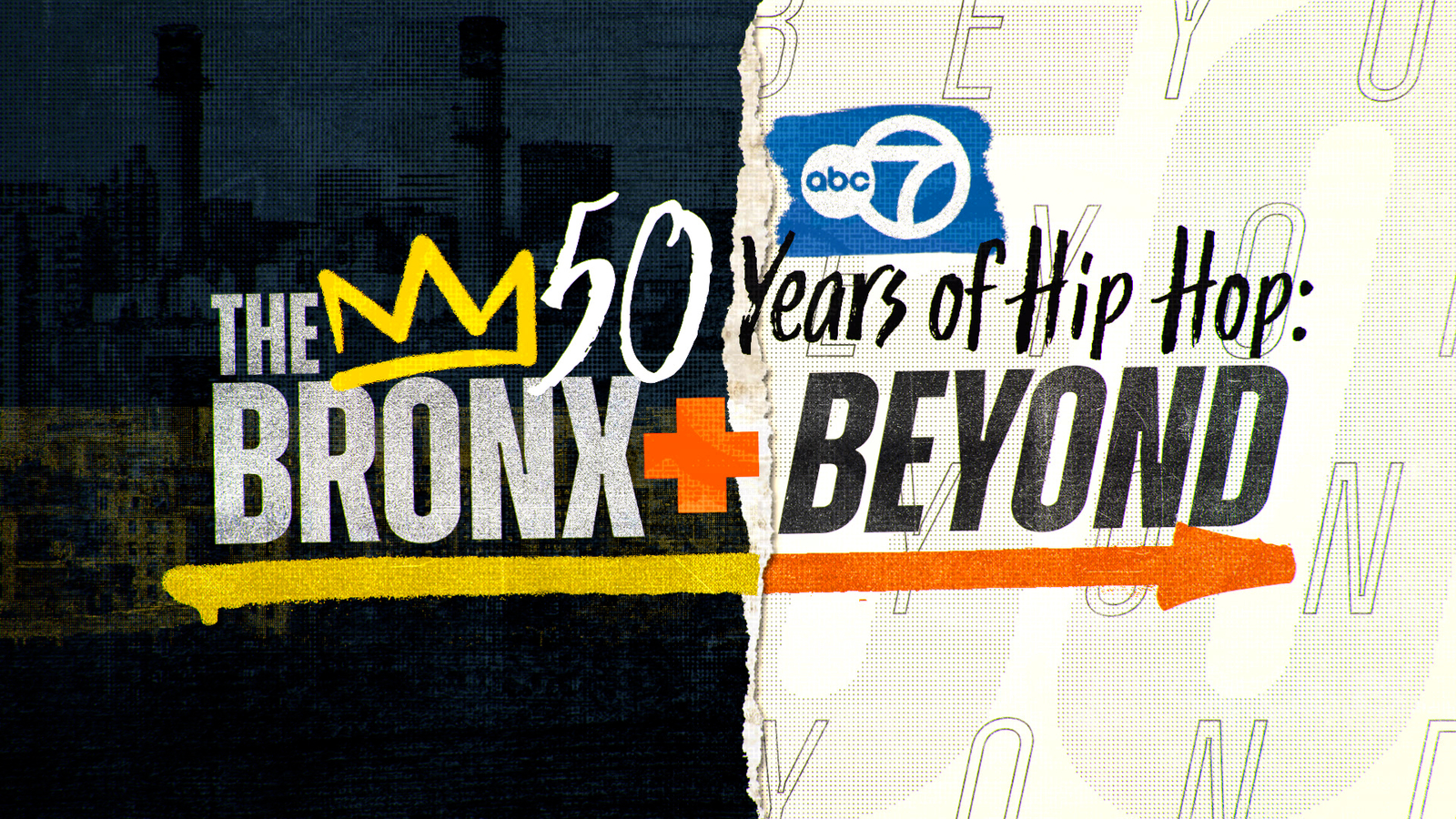
BRONX, New York — It was 50 years ago in an apartment building in the Bronx, about a mile and a half north of Yankee Stadium that hip hop was born.
That is where Clive Campbell, better known as DJ Kool Herc, mixed two copies of the same album into one seamless breakbeat.
What followed in the next five decades, few would have been able to predict. Hip-hop went from a makeshift musical movement to a cultural phenomenon.
In this special “50 Years of Hip Hop: The Bronx and Beyond,” we look at how hip-hop is woven in every aspect of our lives, from television and fashion to advertising and politics.
Watch the one-hour special in the player above. You can also stream on-demand on our connected TV app for Roku, FireTV, Apple TV and Android TV.
The Pillars of Hip Hop
Hip-hop history is so important to both artists and fans. In fact, “knowledge” is one of the so-called five pillars of hip-hop. The others are MCing, DJing, breakdancing, and graffiti.
Kemberly Richardson takes a look at the latter two pillars: breakdancing and graffiti.
Hip Hop Royalty Across the Five Boroughs
George Westinghouse Career and Technical Education High School in Downtown Brooklyn is where Jay-Z, Busta Rhymes, DMX, and The Notorious B.I.G. all went to class. As legend has it, Jay-Z and Busta Rhymes had a rap battle in the lunchroom. Busta admitted that Jay-Z beat him.
Those rappers called Brooklyn home, but each borough lays claim to some of hip hop’s biggest and most influential stars.
In the Bronx, you had KRS-One, Big Pun, and Fat Joe. Queens boasts legends like Run-D.M.C., Nas, and LL Cool J. Biz Markie, Doug E. Fresh and Mase all walked the streets of Harlem. And when you think of Staten Island, the first group that comes to mind is probably Wu-Tang Clan.
Shirleen Allicot sat down one-on-one with Wu-Tang’s Method Man, who discussed hip-hop’s past, present, and future.
Hip-Hop Fashion
Method Man and Wu-Tang clan were also groundbreaking in hip-hop fashion. The group’s executive producer created ‘Wu Wear,’ a multi-million-dollar clothing line.
But when talking about hip-hop clothing trends, it all starts with Run DMC and their Adidas tracksuits. The 80s were also defined by LL Cool J and that Kangol bucket hat, as well as famed Harlem designer, Dapper Dan. He took luxury logos from high-end brands and created new looks for artists. Dapper Dan dressed so many stars including Salt-N-Pepa in bright, bold outfits.
By the late 90s, bigger was better, whether it was oversized T-shirts and jerseys, puffy jackets or baggy pants. A seminal moment in hip-hop fashion came in 2004 when P. Diddy’s line ‘Sean John’ won the Menswear Designer of the Year Award. A decade later, Kanye West created his powerhouse Yeezy brand.
As for today, when he was asked which rapper is now carrying the torch for hip-hop fashion, Dapper Dan said it was Harlem’s own A$AP Rocky. He told the New York Times, “A$AP Rocky doesn’t even need to have another hit. He is the swaggiest.”
Raised on Hip Hop: From the Bronx to Washington
From a rec room in the Bronx to the floor of the House of Representatives, 50 years ago, it would have been impossible to predict that a U.S. congressman would be reciting rap lyrics inside the U.S. Capitol. But that is exactly what happened on the 20th anniversary of The Notorious B.I.G.’s death.
Now, some of the men and women who were raised on hip-hop are leading our city and our nation, and hip-hop culture continues to shape their views.
‘New York Hot Tracks’ on WABC
We would be remiss if we did not mention the small role WABC-TV and anchor David Novarro played in bringing hip-hop to the masses.
Back in the 1980s, Dave helped produce a weekly show called “New York Hot Tracks,” which aired every week on Channel 7. Run-D.M.C., the Beastie Boys, and so many stars appeared on the show. It started on WABC and eventually aired on more than 110 stations across the country.
This post was originally published on this site be sure to check out more of their content.

